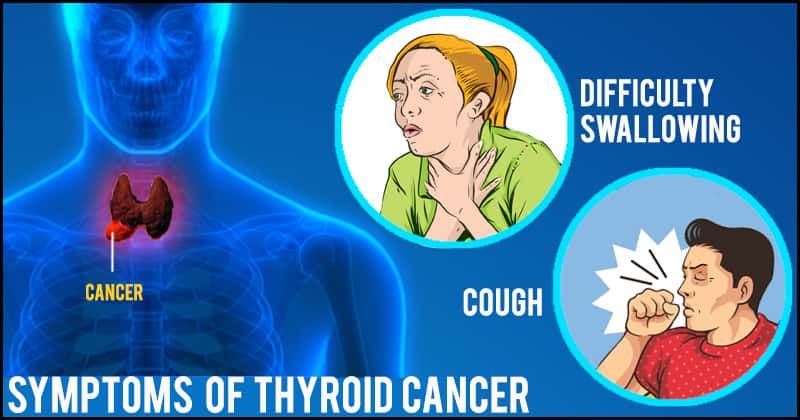What Things Should You Know About Thyroid Cancer?
Thyroid cancer is a cancer that starts in the thyroid, which is a butterfly-shaped gland found at the base of the neck. It makes hormones that help control the body’s temperature, heart rate, blood pressure, weight, and blood flow. In the beginning, this cancer did not show any symptoms or causes. But when it grows slowly, it is very dangerous. Small thyroid cancer can be diagnosed through CT and MRI scans, and it can be cured with treatment. The thyroid cancer treatment is available in the cancer hospital. Treatment options for thyroid cancer are surgery, radiation, hormone therapy, immunotherapy, and radioiodine therapy. In this blog, you will learn about the symptoms and treatment options for thyroid cancer.
Thyroid Cancer Symptoms:
The symptoms of thyroid cancer include the following:
- If there are changes in your voice and an increase in hoarseness.
- When patients find pain in their throat and neck.
- In case the lymph nodes in your neck are swollen.
- Consult your doctor if you are constantly tired or experiencing nausea and vomiting.
- Finding a loss of appetite and unexpected weight loss.
- Finding difficulty breathing and swallowing.
Risk Factors for Thyroid Cancer:
Generally, the risk factors for thyroid cancer are low iodine intake, obesity, an enlarged thyroid, if you have a family history of thyroid cancer or thyroiditis, if there is exposure to radioactive rays from nuclear weapons, gene mutations, which also cause endocrine diseases, and if you have had radiation therapy for head and neck cancer.
Thyroid Cancer Types:
The different types of cancer cells include:
- Papillary thyroid cancer
This type of thyroid cancer is also known as differentiated thyroid cancer. It can happen at any age, but it most commonly affects people between the ages of 30 and 50.This type of cancer is small, and it spreads to the lymph nodes in the neck. But it is curable and rarely fatal.
- Follicular Thyroid Cancer:
Follicular thyroid cancer is a type of cancer that affects people who are older than 50 years. It generally occurs in people who don’t get enough iodine in their diet. Generally, this cancer does not spread to lymph nodes, but it spreads to other parts of the body, such as the lungs or bones.
- Anaplastic Thyroid Cancer
This aggressive type of thyroid cancer grows quickly and is very hard to treat. It affects people over the age of 60 and causes severe symptoms such as neck swelling as well as difficulty breathing and swallowing.
- Medullary thyroid cancer
This type of cancer basically occurs in people who have a family history of thyroid disease. Genetic mutation is the major cause of this disease. It generally begins in the group of thyroid cells known as C cells. The C-cells produce calcitonin, and this hormone helps to control the level of calcium in the blood at an early stage.
Treatment Options for Thyroid Cancer:
The treatments for thyroid cancer include:
- Radioiodine Therapy:
In this therapy, the doctor gives the patient a pill or liquid to swallow that contains a higher dose of radioactive iodine. This radioiodine will destroy the thyroid cancer cells, and the thyroid gland will absorb all the radioiodine. This therapy is completely safe for the patient.
- Radiation Therapy:
In this therapy, a machine is used in external radiation therapy to deliver energy beams to the tumor spot. And placing the radioactive seeds in or around the tumor is known as “internal radiation therapy.” This radiation not only prevents cancer cell growth but also kills them.
- Chemotherapy:
In chemotherapy, intravenous or oral chemotherapy medicines helps to stop cancer growth as well as kill cancer cells.
- Hormone Therapy:
In this therapy, it blocks the release of hormones therapy that are causing cancer to spread in the body.
- Surgery:
In the surgery, the surgeon will either remove part of your thyroid gland or the entire gland. This treatment is determined by the size and location of the tumor.
The thyroid cancer is fully curable, and the treatment stops the cancer cells from growing and spreading in different parts of the body. If the treatment does not cure thyroid cancer, it will prevent the cancer cells from spreading.
The thyroid gland consists of 2 lobes, which are placed on either side of the windpipe. Its main function is to release hormones; chemicals, which have powerful effects on many different functions of the body, the hormones that it secretes are T3, T4 and Calcitonin, which regulates the body’s metabolic rate. Excess of T3 and T4 makes people overcharged and one might lose weight. If people have less of these hormones, they might feel lethargic and gain weight.
Thyroid cancer is a rare kind of cancer hence risk is associated with it, which takes place in the gland at the base of the neck. A painless lump or an inflammation that develops in the neck is one of the most common symptoms of thyroid. Other symptoms show up when the condition reaches an advanced stage, which may include; inexplicable hoarseness, which lasts for more than a few weeks, difficulty in swallowing, which does not get better, a sore throat or a lump in or around the neck. Not everyone who has a lump in the thyroid gland has cancer, as one in twenty lumps turn out to be cancerous.
As per studies the number of thyroid patients in India is one-tenth of 48,000 Americans who are suffering from thyroid cancer. So, we can officially put around 5000 to 6000 patients in India are suffering from thyroid cancer. There are four primary types of Thyroid Cancers, Papillary Carcinoma, which is the most common type, Follicular Carcinoma, Medullary Thyroid Carcinoma and Anaplastic Thyroid Carcinoma, which is the rarest and the most aggressive type of thyroid cancer and usually affects the geriatric population over 60 years old.
Women are 2 to 3 times more likely to develop thyroid cancer than men. The reason is not entirely clear though it can be a resultant of the hormonal changes linked to the female reproductive system.
Why does Thyroid Cancer happen?
In most cases, the cause remains unknown. However, there are a few risk factors in the thyroid cancer, which increase your chances of developing the condition; having a family history of thyroid cancer, weight, height and exposure to radiation.
TFT or Thyroid Function Test measures the hormone levels in the blood and rules out other thyroid problems. Clinicians might do further tests if the reason for lump remains unknown and the TFT comes out fine.
The treatment of thyroid cancer depends son the stage and type of the cancer, and one hundred percent cure is possible. Doctors normally treat the cancers of thyroid using mix of radiotherapy and surgery, which stops the cancerous growth. Cancerous cells can seldom reappear years after the surgery, your doctor will ask you to visit often so that it can be treated in time.
Eating healthy, whole grains, fruits and leafy vegetables is the best way to avoid getting thyroid cancer and all other types of cancer.
Tele Consult with our expert doctors at Oncoplus Hospital, Defence Colony, New Delhi, write to us info@oncoplus.co.in or call us at +91 85889 09091 to book an appointment.
Understand Thyroid Cancer
Though rarer than other cancers, the number of people seeking treatment for thyroid cancer in Delhi has steadily grown, and we’ve seen an upward curve in the number of patients who come to us for the best cancer treatment in Delhi.
This article from one of Delhi’s best doctors for thyroid cancer will help you better understand what causes thyroid cancer and how it can be treated.
The thyroid gland is a part of the endocrine system; this system produces hormones that control the normal functioning of the body. The thyroid is a tiny, butterfly-shaped gland found at the base of the throat, it has one left and one right lobe. The thyroid produces the hormone thyroxine, which helps the body regulate its metabolism, blood pressure, heart rate, temperature and weight.
Thyroid cancer is the most common type of endocrine cancer and cases are on the rise in India.
Symptoms of thyroid cancer
Early stages of thyroid cancer have no symptoms whatsoever, but you should not be able to feel your thyroid gland if it’s healthy. As the thyroid cancer advances, the symptoms that can occur are a lump in the throat, cough, hoarseness, ache in the throat and neck, difficulty while swallowing or swollen lymph nodes in the neck
Talk to the best oncologists in Delhi at Oncoplus if you have any of these symptoms.
Risk factors
The factors that can add to the risk of thyroid cancer can be a family history of thyroid cancer, women get it more, a history of breast cancer or being exposed to radiation, age is another factor and thyroid cancer will most likely to occur after the age of 40.
Tests to detect thyroid cancer
Diagnosing thyroid cancer
You can get full cancer testing with us at our in-house laboratory for reliable and quicker test results. You can go in for a physical exam or laboratory test which can reveal thyroid cancer. A neck examination can also reveal a small or large mass in the thyroid. Lymph nodes could also be enlarged.
Lab tests and procedures used to diagnose thyroid cancer include thyroid function tests, thyroglobulin test, ultrasound of thyroid gland, thyroid scan and biopsy, level of calcium, phosphorus and calcitonin in the blood and a laryngoscopy can reveal potential for thyroid cancer.
Early detection is the best cure in a lot of cancer cases, most in fact. And you should keep these things in mind and call us for more information on thyroid cancer or for booking a consultation with our expert oncologists at Delhi’s best cancer hospital.


